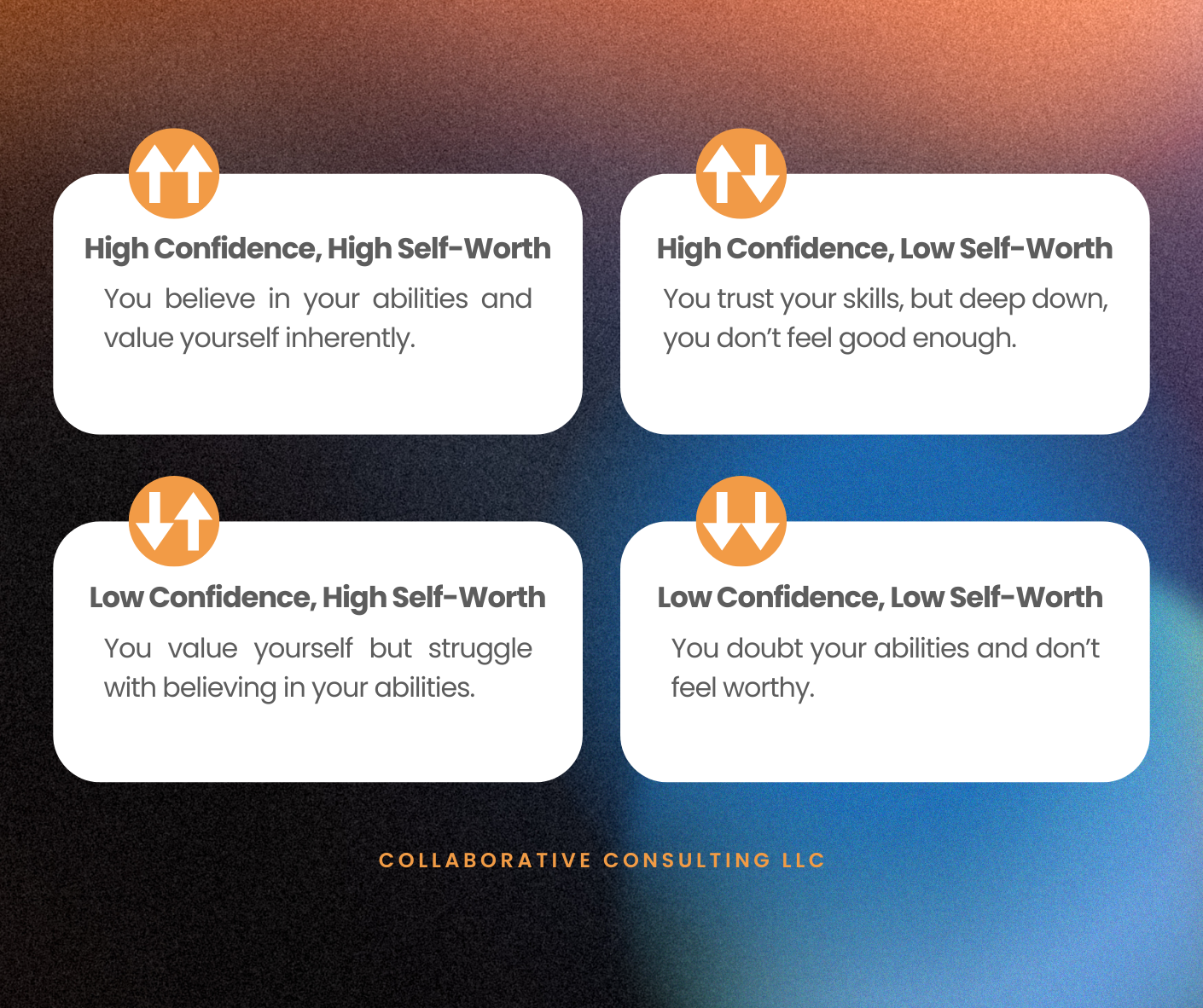Do You Feel Like You Belong in the Room?
Do You Feel Like You Belong in the Room? It’s a question that resonates deeply with many women. The feeling of worthiness—or the lack thereof—can influence every aspect of our lives, from career success to personal relationships. Despite numerous achievements, do you still feel like you’re not enough? You’re not alone. A staggering 75% of female executives report experiencing imposter syndrome. But why is this so prevalent, and how can we overcome it?
Understanding Worthiness: It’s More Than Achievement
Feeling worthy isn’t just about ticking off accomplishments on a list. It’s about recognizing and valuing your inherent worth, regardless of external validations. Often, both women & men find themselves caught in a cycle of achieving more and more, yet nothing ever seems enough. This relentless pursuit of perfection can lead to burnout, anxiety, and a persistent sense of inadequacy.
Why Do Women in particular Experience Imposter Syndrome?
Confidence and self-worth, though related, are distinct concepts. Confidence is about your belief in your abilities, while self-worth is about valuing yourself regardless of your performance or achievements. Here’s a simple chart to help you identify where you stand
- Societal Expectations: Women are often held to higher standards, both professionally and personally. This can create immense pressure to be perfect.
- Cultural Conditioning: From a young age, many girls are taught to be modest, to downplay their achievements, and to avoid standing out. This can lead to self-doubt and undervaluing one’s abilities.
- Workplace Dynamics: In male-dominated industries, women may feel like they have to work twice as hard to be taken seriously. This can exacerbate feelings of unworthiness and self-doubt.
Confidence vs. Self-Worth: Where Are You on the Chart?
Confidence and self-worth, though related, are distinct concepts. Confidence is about your belief in your abilities, while self-worth is about valuing yourself regardless of your performance or achievements. Here’s a simple chart to help you identify where you stand:
Reflect on where you fall on this chart. Understanding this can be the first step towards building a stronger sense of worthiness.
Steps to Cultivate Worthiness
- Acknowledge Your Achievements: Take time to reflect on and celebrate your accomplishments. This helps to reinforce your capabilities and boost your confidence.
- Practice Self-Compassion: Be kind to yourself, especially when you make mistakes. Understand that perfection is an illusion, and it’s okay to be imperfect.
- Challenge Negative Thoughts: When self-doubt creeps in, question its validity. Replace negative thoughts with affirmations of your worth and capabilities.
- Seek Support: Surround yourself with people who uplift and support you. Share your feelings of self-doubt with trusted friends or mentors who can offer perspective and encouragement.
- Set Boundaries: Learn to say no and prioritize your well-being. Overextending yourself can lead to burnout and exacerbate feelings of unworthiness.
Embrace Your Worth
Feeling worthy is a journey, not a destination. It requires consistent effort and self-reflection. Remember, your worth is not defined by your achievements or how others perceive you. It’s intrinsic and unwavering. By acknowledging your worth and embracing your unique strengths, you can break free from the cycle of imposter syndrome and truly belong in any room you step into.
By understanding and addressing the root causes of imposter syndrome and practicing self-compassion, you can begin to cultivate a stronger sense of worthiness. Let’s embark on this journey together and redefine what it means to truly feel worthy.
By following these steps, you can begin to build a foundation of self-worth that transcends external validations. It’s time to embrace your worth and step confidently into every room, knowing you belong. At Collaborative Consulting, we understand the challenges leaders face with imposter syndrome and self-worth. Our tailored coaching programs and leadership development workshops can help you build unshakable self-worth and embrace your unique strengths.





